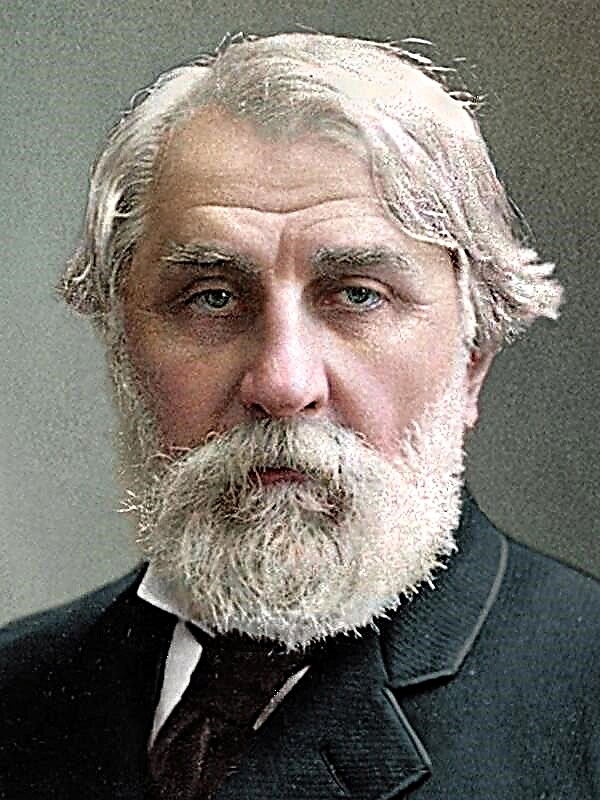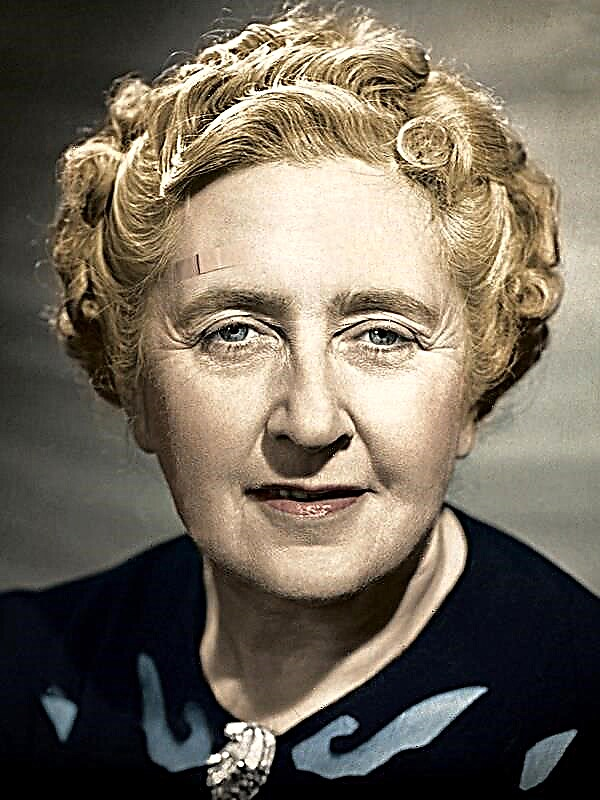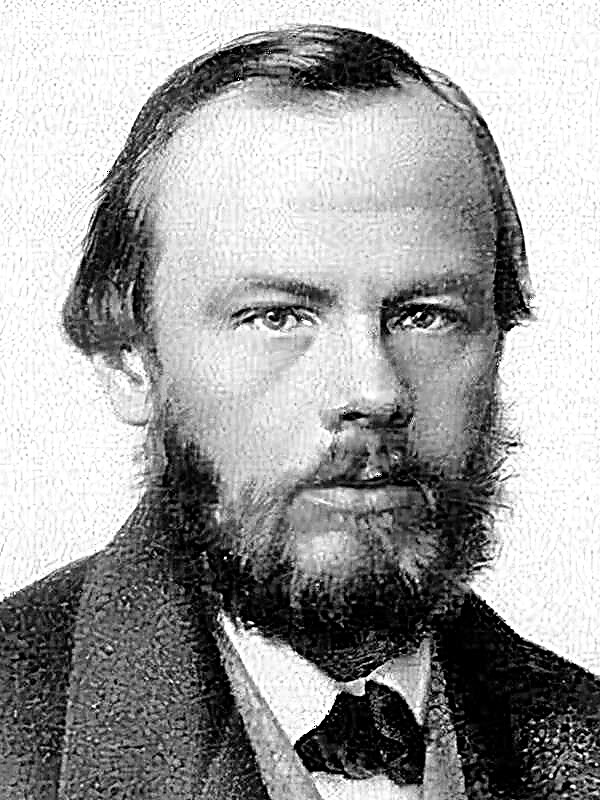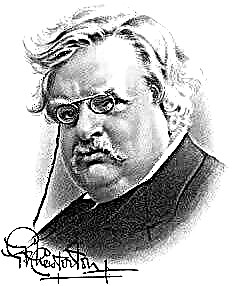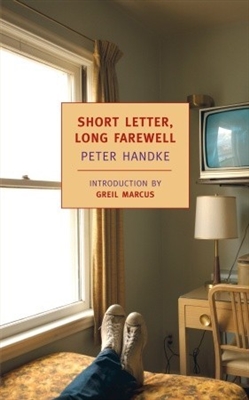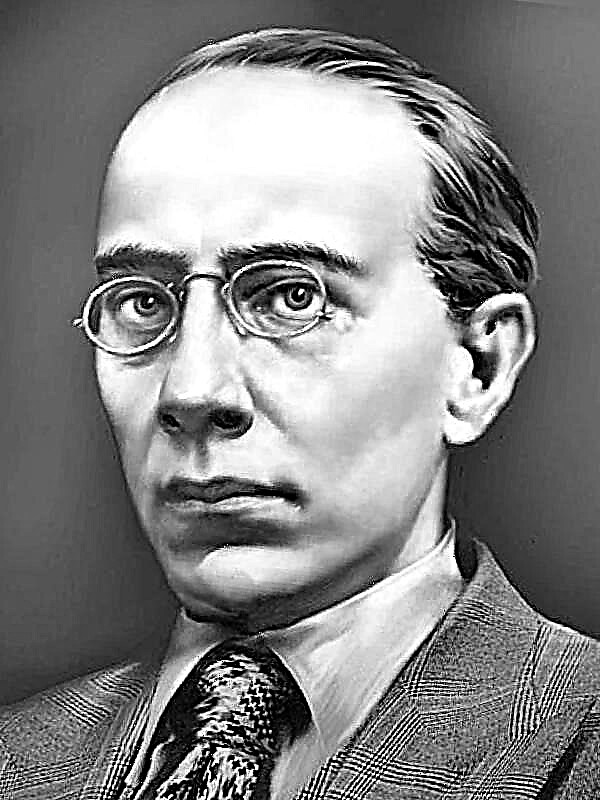Sergey Yesenin is one of the most beloved and famous poets of Russia. His poems still make people's hearts feel, believe and empathize. For many readers, the domestic poet is known as a rebel, but his antics pursued only one goal - to nourish the soul with new experiences in order to later reflect them on paper. That is why the short fate of Sergei Yesenin is so bright and unusual.
History of success
Sergei Alexandrovich Yesenin was born in 1895 in the village of Konstantinovo (Ryazan region). The poet’s mother and father were ordinary peasants who spent all their time at work, so the boy lived with his maternal grandparents. Already then, according to the memoirs of the writer himself, talent began to wake up in him: “He began to compose poetry early. Grandma pushed. She told tales. “I didn’t like some tales with bad ends, and I remade them in my own way.” Yesenin also loved his mother’s songs, which left a strong imprint on the works of an outstanding author: Sergey Aleksandrovich’s poems, like songs, are melodic and rhythmically organized.
At the age of nine, Yesenin enters the Konstantinovsky Zemsky four-year school, and then goes to the church-teacher school in the village of Spas-Klepiki. It was then that Sergei Alexandrovich wrote his first poems: “Memories”, “Stars”, “My Life”. But the poet began to print a little later, in 1914: the first published work of Yesenin was the poem "Birch" in the children's magazine "Mirok". Having moved to the capital and realizing his uniqueness, he began to call himself a peasant poet. In his lyrics, people found sincerity, natural harmony, a folk language that was so lacking in the city. Adding to the imagists, the author began to experiment with the form and rhythm of the verse, diversified the subject of his work, but soon ceased to associate himself with any movement, turning onto his own path. So, Yesenin became one of the most prominent, shocking and successful people of his time.
Lifestyle
Many of us associate the name of Sergei Yesenin with the image of a rebel poet, a simple-hearted and sincere guy from the village. But in real life, only thoughtfulness and prudence helped Sergei Alexandrovich with the help of influential writers to achieve such fame. In addition, the poet was very sensitive to criticism, collected reviews of his works and knew more than half of them by heart.
An integral part of Yesenin’s life was also constant scandals and binges. Sergei Alexandrovich was afraid of the police, but he was a regular. The poet was under special control in Moscow, so in all the places he visited, it was possible to meet employees in civilian clothes. At the same time, Yesenin’s robbery never reached the court — useful contacts helped out.
Qualities of Yesenin
Esenin's character can be described in a nutshell: a dreamer and a romantic. Sergey Alexandrovich was plunged headlong into fantasies and fantasies that were romantic in nature — it was from there that he took positive emotions that filled his life with meaning. By nature, the poet was not a leader, because of which he preferred stronger people, but if the friend chosen by Yesenin was moving in the wrong direction, Sergey Alexandrovich left him without a drop of doubt.
The boundless love for the Motherland made the poet vulnerable, and the eternal worries about the fate of Russia caused unbearable pain in Yesenin's soul, which he drowned out with alcohol. When reading his poems, the poet clenched his fists so much that many wounds remained on his palms, which indicates the strength that Sergey Alexandrovich put into reading lyric works.
Worldview
The worldview of Sergei Yesenin is a union of two principles: peasant and Christian (even the Russian hut in the work of Sergei Alexandrovich was awarded the biblical meaning). It was peasant life that was for the poet an earthly paradise: “If the holy army calls out: /“ Throw Russia, live in paradise! ”/ I will say:“ Do not have paradise, / Give my motherland! ”
Sergei Yesenin often systematized his images, dividing them into soul, mind and flesh: all of them reflect a different degree of interpenetration of a phenomenon, worlds and concepts into each other. Sergei Alexandrovich took the word mystically: for him it was something meaningless, a mixture of the earthly and the ordinary with the universe and unexplored.
Women and children
Legends still circulate about Sergei Yesenin’s personal life: his friends talked about how the poet only smiled, and all the women became his fans. But only a few Yesenin novels are reliably known.
Sergei Alexandrovich “spun” the first novel while still very young — the poet was 17 years old. The poet's beloved was a fairly adult woman - Anna Izryadnova. The young lived together in Anna's apartment, but after she became pregnant, Yesenin left for Crimea and never took part in raising his son.
The next "victim of love" of the poet was Zinaida Reich. Yesenin fell in love with the girl at first sight, but in these respects, as in the previous ones, pregnancy changed everything. It was as if they replaced Sergei Yesenin: he began to suspect his wife of treason, beat her, and only in the morning to ask for forgiveness. Zinaida could not live like this and, learning about the second pregnancy, almost immediately broke all ties with her husband.
But the main woman in the life of Sergei Alexandrovich was the famous dancer - Isadora Duncan. Two talented people met at a creative evening and realized that they could not imagine life without each other. The couple went to America, but after a while Yesenina was bored by her homeland, and he returned to Russia. Later, Duncan went to perform in the Crimea, and Sergei Alexandrovich promised to come later, but deceived: Yesenin sent Isadora a letter in which he announced that he was going to marry another.
During his short life, Sergei Yesenin did not find family happiness.



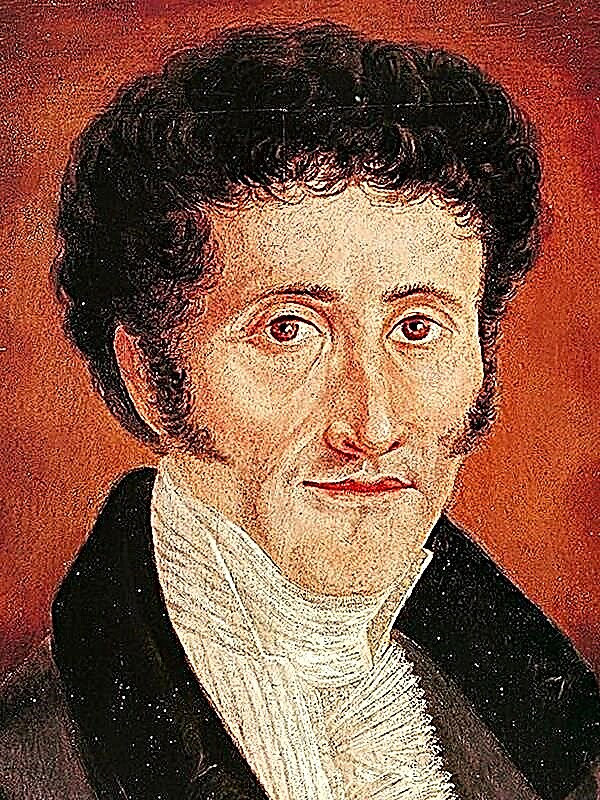 Nutcracker
Nutcracker